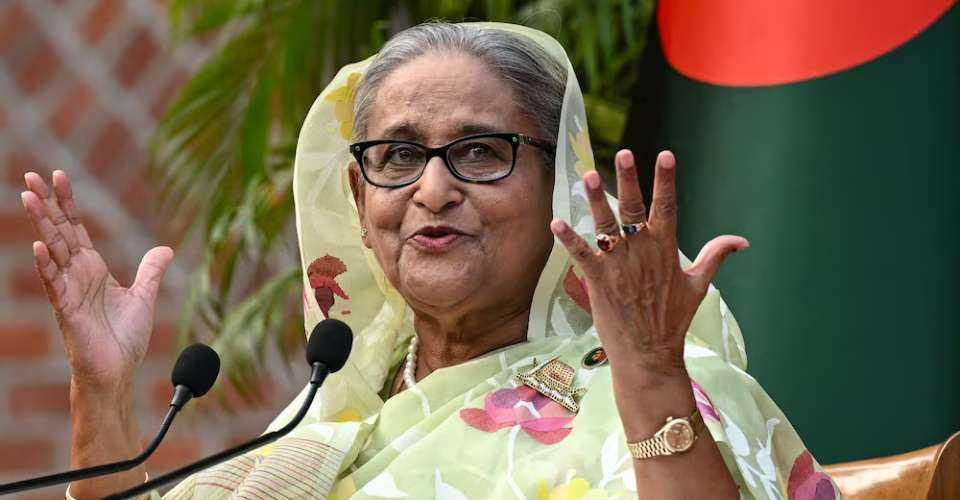
By UCA News reporter
Top Christian organizations have expressed surprise and shock after Bangladesh’s Prime Minister Sheikh Hasina accused Christians of plotting to carve out a “Christian state” of their own by taking parts of Bangladesh and Myanmar.
“We, the Christians of Bangladesh, and their leaders — the Catholic Bishops’ Conference of Bangladesh (CBCB) and the United Forum of Churches (UFCB) are surprised and worried,” said a joint statement issued on May 26.
In today’s globalized and secularized world, the idea of a ‘Christian state’ is absurd, said the statement signed by Archbishop Bejoy N. D’Cruze of Dhaka, the president of CBCB and UFCB.
The reaction came after Hasina, made the remarks while presiding over a meeting of 14-Party Grand Alliance on May 23.
“Like East Timor… they will carve out a Christian country taking parts of Bangladesh [Chattogram] and Myanmar with a base in the Bay of Bengal,” national English newspaper The Daily Star quoted Hasina as saying on May 24.
She said the government is under pressure to allow a foreign government to use a base in the Bay of Bengal, which she rejected without naming the country.
“Many have their eyes on this place. There is no controversy here, no conflict. I won’t let that happen. This is also one of my crimes [in their eyes],” she said, adding that this is why the Awami League government is always in trouble.
D’ Cruze said Christians always support efforts to safeguard the sovereignty of Bangladesh, noting that Christians fought for the independence of the country from Pakistan [in 1971] and made vital contributions to nation-building.
The alleged plot is neither supported nor accepted by Christians, he said.
However, he also said that some opportunists may grab this opportunity to destroy the existing harmony in Bangladesh given the PM’s statement.
“Therefore, I draw the attention of the authorities to see that the Christian community may not face any difficulty or insecurity; if there is any need, protection should be given to the Christian community,” D’Cruze added.
Hasina’s remarks raised the eyebrows of political and security analysts, with some saying it is still unclear why the premier made such remarks now.
“What we know about is some level of insurgency in Bandarban and that the Kukis and Chins had been demanding their rights. Some may be Christians, but their demand is not for a Christian state,” security analyst and former air commodore Ishfaq Ilahi Choudhury told UCA News.
Choudhury referred to an upsurge in militancy by the Kuki-Chin National Front (KNF), including violence, bank robberies, and kidnappings in Bandarban, one of the three hill districts in southeast Bangladesh bordered by India and Myanmar, in recent months.
He explained that the grievances of the Kuki Chin people, a collective of smaller ethnic groups, stem from their deprivation and denial of rights by numerically dominant Buddhist groups like Chakma on the hills.
The government needs to ensure their rights including land rights as detailed in the 1997 Peace Accord, he said.
He pointed out that some Christian-majority ethnic groups in Myanmar are fighting for autonomy, democracy and rights, and not a ‘Christian State.’
In Indian states like Manipur and Nagaland, ethnic groups are demanding lawful rights, he said, adding it is impossible to establish states based on religion in today’s world.
Another international expert, speaking on condition of anonymity, said Hasina’s remarks might target the US government, which has put huge pressure on the ruling Awami League to hold free and fair elections ahead of the Jan. 7 polls.
The AL won the controversial election by a landslide, defying diplomatic pressure from the US and Western governments, including a restrictive visa policy for undermining the election process.
Before the election, Hasina alleged that her government faced US ire for refusing to let it have a naval base on St. Martin’s Island in the Bay of Bengal.
Earlier, the US government sanctioned several top officials of the anti-terror agency Rapid Action Battalion (RAB) for violation of human rights, including extrajudicial killings and enforced disappearances.
On May 21, the US State Department imposed visa sanctions on former army chief General (retired) Aziz Ahmed and his family members for “significant corruption.”
“It is better to avoid making statements of such sensitivity,” he added.
source : ucanews
